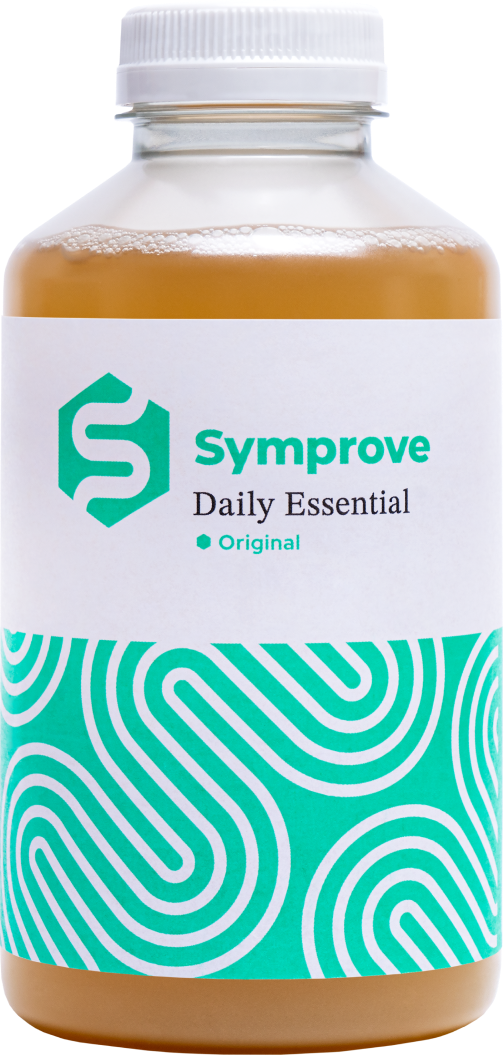Irritable bowel syndrome (IBS) is a disorder of gut-brain interaction, previously known as a functional bowel disorder. The global prevalence of IBS in adults is around 4% when adopting the Rome IV criteria (Oka et al., 2020), shown in Table 1. This represents significant economic impact on society and considerable burden on the individual’s quality of life. Current guidelines for management of IBS from the National Institute for Health and Care Excellence (NICE) and The British Society for Gastroenterology (BSG) recommend dietary and lifestyle advice, pharmacological therapy, and referral for psychological interventions. Dietary interventions have been shown to be patients most preferred option for IBS therapy (Sturkenboom et al., 2022).
Table 1. Rome IV criteria (click to expand)
The British Dietetic Association (BDA) evidence-based practice guidelines for the dietary management of irritable bowel syndrome in adults (2016) are 8 years old (Figure 1). Updated practice guidelines are in the process of being written.
Figure 1. Irritable bowel syndrome dietary algorithm (McKenzie et al., 2016). Click to expand
First line dietary advice
The following table compares the NICE (2015) and BDA (2016) first line dietary advice. The practice-based evidence in nutrition (PEN) evidence grading is shown in brackets next to the BDA recommendations. Level A indicates the recommendation is supported by good evidence; Level D indicates limited evidence.
Table 2. Comparison of 1st line dietary advice in current guidelines (click to expand).
The BSG guidelines (2021) suggest following first line dietary advice in line with NICE and BDA guidance. For global symptoms and abdominal pain in IBS, they suggest trialling probiotics for up to 12 weeks, discontinuing them if there is no improvement in symptoms.
There has been recent focus on alternative dietary strategies to the low FODMAP diet, including the gluten free and Mediterranean diets.
Low FODMAP diet (LFD)
The LFD is second line dietary advice in the current BDA (2016), BSG (2021) and NICE (2017) guidelines. Fermentable, Oligo-, Di-, Mono-saccharides and Polyols (FODMAPs) are short chain carbohydrates that are poorly absorbed in the small intestine. They increase small bowel water content by osmosis and bacterial fermentation of these foods causes the release of the gases carbon dioxide and hydrogen. This process occurs in healthy individuals as well as those with IBS but those with IBS may experience symptoms such as change in bowel habit, wind and bloating as a result of consuming these foods, likely due to visceral hypersensitivity. The diet consists of three stages: reduction, reintroduction and personalisation. FODMAPs can be found in a range of different foods:
- Oligo-saccharides: e.g. fructans (wheat, rye and certain vegetables) and galacto-oligosaccharides (pulses and legumes)
- Di-saccharides: e.g. lactose (mammalian milk)
- Mono-saccharides: e.g. fructose (honey, some fruit and fruit juices)
- Polyols: e.g. sorbitol and mannitol (certain fruits and vegetables, sugar free products).
Black et al carried out a systematic review and network analysis in 2022 using 13 eligible randomised controlled trials (RCT’s). The LFD was found to be significantly more effective than a habitual diet (BDA/NICE first line dietary advice), for global IBS symptoms, abdominal bloating or distension. However it is worth noting, these RCT’s were mostly based in secondary or tertiary care, rather than primary care, and did not study effects of FODMAP reintroduction and personalisation on symptoms. Longer term efficacy has been demonstrated at between 6-18 months with an adapted LFD, without compromising nutritional adequacy (O’Keeffe et al, 2018 & Rej et al 2021 ). The importance of supervision by a trained dietitian cannot be underestimated to reduce the risk of patients remaining on the restrictive FODMAP reduction stage long-term.
Interestingly, the BDA guidelines state that a LFD had similar efficacy as a probiotic L. rhamnosus GG for overall symptoms in IBS-D and IBS-M. They rate the evidence for both as ‘B’, supported by fair evidence. Furthermore, despite numerous robust RCT’s, BSG guidance rates the evidence base for the LFD as weak, very low quality, the same rating they gave for probiotics.
Gluten-free diet (GFD)
The use of a GFD outside of diagnosed coeliac disease has grown in popularity over recent years. Gluten is found in the grain’s wheat, barley and rye. The BDA (2016), NICE (2017) and BSG (2021) guidelines do not recommend a GFD for non-coeliac IBS. Rej et al (2022) recently held a UK consensus meeting assessing the role of traditional dietary advice (TDA), the LFD and GFD in IBS. This well written summary of evidence concluded no statistical difference in effectiveness when treating non-constipated IBS with traditional dietary advice (following first line dietary guidelines for IBS), the GFD and LFD at short-term follow-up. However, there is uncertainty as to the mechanism of action. Differentials include a reduction of triggers in symptom generation such as fructans, alpha-amylase trypsin inhibitors or wheat germ agglutinins. They describe considering a ‘bottom up’ approach if an individual notes gluten to be a primary trigger. Non-coeliac IBS patients may not need to follow the diet strictly to achieve similar levels of symptom relief as those on a strict diet.
Mediterranean diet (MD)
A MD is largely based on plant foods like fruit, vegetables, wholegrains, nuts, seeds, and pulses, like, beans, chickpeas and lentils. The diet includes moderate amounts of lean proteins like fish and chicken and low-fat dairy foods and limits consumption of meat and saturated fat, such as butter. Olive oil is used to replace other oils and fats in the diet. The MD is not mentioned in any of the BDA, BSG or NICE guidance currently. It has an extensive evidence base for a wide range of health benefits such as reducing cardiovascular disease and cancer risks and treating depression. In a study conducted by Paduano et al (2019), 28 patients followed the MD, GFD or LFD, each for 4 weeks. A balanced MD was found to improve symptom severity, pain as rated on a Visual Analogue Scale, and quality of life. 86% of patients preferred the MD to the LFD or GFD. It has been suggested the MD may improve gastrointestinal symptoms due to a reduction in anxiety or depression and subsequent effect on the gut–brain axis (Staudacher et al., 2023).
Advantages and disadvantages of dietary therapies
GFD: advantages
- ‘Bottom up approach’ may be more acceptable to patients due to it being less restrictive compared to LFD.
GFD: disadvantages
- Not currently recommended in the BDA, BSG or NICE guidelines for IBS.
- Risk of nutritional inadequacy.
- Potential high cost if choosing ‘free from’ products.
- Lack of evidence for efficacy of diet at long-term follow up (Rej et al., 2022)
LFD: advantages
- Currently recommended in BDA, NICE and BSG guidelines.
- Shown to offer IBS symptom management in 50-70% of individuals with IBS
- Structured with comprehensive resources such as the King’s College London booklets and Monash app, when provided under supervision of a dietitian.
LFD: disadvantages
- Complex and restrictive. Can take 4-6 months to complete all 3 stages.
- At least 2 outpatient appointments with a Dietitian required.
- Potential high cost if choosing ‘free from’ products.
- Potential inadequate nutrient intake due to restrictive nature of diet.
- Adherence/maintenance of diet can be challenging.
- All evidence is dietetic-led but majority of patients do not get referred to a dietitian.
- High variation in dietetic provision across country. Waiting lists can be lengthy.
- Need to be careful to avoid negatively impacting on behaviours towards food.
MD: disadvantages
- Easy to follow compared to the LFD and GFD.
- Rich in fibre, antioxidants, and monounsaturated fats.
- Provides adequate quantity of FODMAPs, which are essential in the production of short-chain fatty acids (SFAS). SCFA’s are important for colon health as they are the primary energy source for colonic cells and have anti-carcinogenic, as well as anti-inflammatory properties.
- Improves cardiovascular health, metabolic health and cognitive function. Lowers risk of heart disease, stroke and Type 2 Diabetes.
- Evidence for prevention and treatment of depressive disorders (Lassale 2019, Jacka et al 2017).
- Unlikely to involve a significant cost as no reliance on ‘free-from’ foods.
MD: disadvantages
- Not currently recommended in the BDA (2016), BSG (2021) or NICE (2025) guidelines for IBS.
- Rich in high FODMAP foods, particularly Fructans and Fructose which may trigger symptoms in some individuals.
- Cost of olive oil has increased significantly in recent months.
Impact of dietary therapies on the gut microbiome
GFD: Lack of evidence in patients with IBS. Reduction in proinflammatory bacteria such as Veillonellaceae (Caio et al., 2020) and beneficial bacteria such as Bifidobacterium have been noted in healthy individuals (Sanz Y., 2010)
LFD: Bifidobacterium noted to be of lower abundance on the restrictive phase of the LFD (Staudacher and Whelan 2016). Often patients remain on the restrictive phase longer than recommended which may impact the gut microbiome’s diversity.
MD: Greater adherence to MD associated with a lower abundance of potentially harmful gut bacteria such as Faecalitalea, Streptococcus, and Intestinibacter. Higher abundance of potentially beneficial Holdemanella from the Firmicutes phylum also seen (Chen et al. 2024). In terms of the impact of alleviating depression, the mechanisms of the effect on the brain are likely to at least partially involve the gut microbiome (Marx et al 2021).
It is important to recognise limitations to this research in terms of the baseline diet and microbiome of individuals, whether food is provided as a control, or probiotic exclusion advocated. Further RCTs assessing alternative approaches to IBS dietary management and the impact on the microbiome are needed.
Rej at al (2022) stress the importance of dietetic input for individuals with IBS following restriction diets, to reduce risk of nutritional inadequacy and ‘gastrointestinal-specific symptom anxiety.’ This is the fear of symptoms which can drive food avoidance in IBS potentially leading to disordered eating patterns.
A personalised approach to these dietary interventions is likely to be more efficacious. Going forward we may have microbiome profiles which help us identify which approach an individual is likely to respond to. There is emerging evidence into co-administration of multistrain probiotics potentially offsetting possible negative effects of these diets on the gut microbiome.
Research conducted by the American Gut Project (McDonald et al. 2018) found eating 30 plant types every week positively affects the diversity and health of the gut microbiome. For some individuals, this advice could be combined with the specific dietary advice for IBS.
Finally, the importance of a multidisciplinary approach to IBS management should not be underestimated, as well as focusing on non-diet pillars of gut health including exercise, stress management and sleep.
References
- Black CJ, Staudacher HM, Ford AC. ‘Efficacy of a low FODMAP diet in irritable bowel syndrome: systematic review and network meta-analysis.’ Gut. 2021;71:1117–1126.
- Caio, G. et al (2020) ‘Effect of Gluten-Free Diet on Gut Microbiota Composition in Patients with Celiac Disease and Non-Celiac Gluten/Wheat Sensitivity.’ Nutrients. 12, 1832.
- Chen E.Y., et al. (2024) The Association Between a Mediterranean Diet and Symptoms of Irritable Bowel Syndrome. Clin Gastroenterol Hepatol. 22(1):164-172.e6.
- Drossman, D.A. and Hasler, W.L. (2016) ‘Rome IV. Functional Gastrointestinal disorders. Disorders of the gut-brain interaction.’ 4th Ed. The Rome Foundation.
- Jacka FN, et al. (2017). ‘A randomised controlled trial of dietary improvement for adults with major depression (the ‘SMILES’ trial.)’ BMC Med.15:23
- Lassale C, et al. (2019). ‘Healthy dietary indices and risk of depressive outcomes: a systematic review and meta-analysis of observational studies.’ Mol Psychiatry. 24(7):965-986.
- Marx W, et al. (2021) ‘Diet and depression: exploring the biological mechanisms of action.’ Mol. Psychiatry. 6:134–150
- McDonald D, et al. (2018) American Gut: an Open Platform for Citizen Science Microbiome Research. mSystems. 2018;3(3):e00031-18.
- McKenzie YA, et al. (2016) ‘British Dietetic Association systematic review and evidence-based practice guidelines for the dietary management of irritable bowel syndrome in adults (2016 update).’ J Hum Nutr Diet. 29(5): 549-575.
- McKenzie YA, et al. (2016) ‘British Dietetic Association systematic review of systematic reviews and evidence-based practice guidelines for the use of probiotics in the management of irritable bowel syndrome in adults (2016 update).’ J Hum Nutr Diet; 29(5): 576-92
- National Institute for Health and Care Excellence (NICE). (2017). ‘Irritable bowel syndrome in adults: diagnosis and management.’ NICE Clinical guideline [CG61]
- Oka P, et al (2020). ‘Global prevalence of irritable bowel syndrome according to Rome III or IV criteria: a systematic review and meta-analysis.’ The Lancet Gastroenterology & Hepatology; 5(10):908-917.
- O’Keeffe M, et al (2018) ‘Long-term impact of the low-FODMAP diet on gastrointestinal symptoms, dietary intake, patient acceptability, and healthcare utilization in irritable bowel syndrome.’ Neurogastroenterology & motility. 30:1
- Paduano D, et al (2019). ‘Effect of Three Diets (Low-FODMAP, Gluten-free and Balanced) on Irritable Bowel Syndrome Symptoms and Health-Related Quality of Life.’ Nutrients. Jul 11;11(7):1566.
- Rej A et al (2021) The low FODMAP diet for IBS; A multicentre UK study assessing long term follow up. Dig Liver Dis. Nov;53(11):1404-1411.
- Rej A, et al (2022). ‘Diet and irritable bowel syndrome: An update from a UK consensus meeting.’ BMC Medicine; 20:287
- Sanz Y. (2010) ‘Effects of a gluten-free diet on gut microbiota and immune function in healthy adult humans.’ Gut Microbes. May-Jun;1(3):135-7.
- Staudacher, H.M. and Whelan, K. (2016) ‘Altered gastrointestinal microbiota in irritable bowel syndrome and its modification by diet: probiotics, prebiotics and the low FODMAP diet’, Proceedings of the Nutrition Society, 75(3), pp. 306–318.
- Staudacher, H.M, et al. (2024) Clinical trial: A Mediterranean diet is feasible and improves gastrointestinal and psychological symptoms in irritable bowel syndrome. Aliment Pharmacol Ther. 59(4):492-503.
- Sturkenboom R, et al. (2022) ‘Discrete choice experiment reveals strong preference for dietary treatment among patients with irritable bowel syndrome.’ Clinical Gastroenterology & Hepatology. Nov;20(11):2628-2637
- Vasant D. H, et al. (2021) ‘British Society of Gastroenterology guidelines on the management of irritable bowel syndrome.’ Gut; 70:1214-1240.






